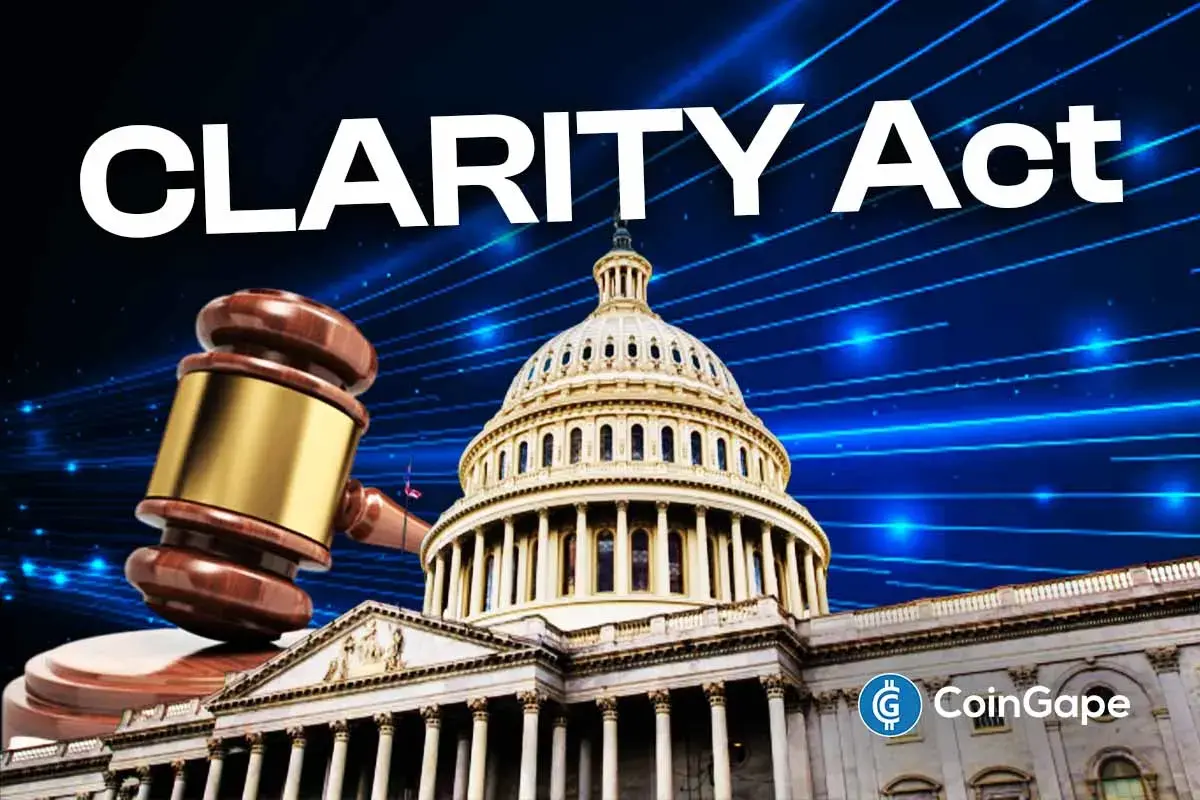U.S. House Reattaches Anti-CBDC Bill to CLARITY Act Ahead of Senate Review

Highlights
- The Anti-CBDC bill has been reattached to the CLARITY Act and sent to the U.S. House.
- The joint resolution streamlines crypto regulations and CBDC ban before the Senate takes it up.
- Legislators attribute this procedural measure to having the House and Senate align on the same priorities.
The United States House of Representatives has voted to retroactively combine the Anti-CBDC bill with the CLARITY Act before sending it to the Senate. The move comes after lawmakers initially chose in July to attach the Anti-CBDC language to the defense spending bill. At that time, they chose not to merge it with the CLARITY.
House Consolidates CLARITY Act and Anti-CBDC Bill in Procedural Move
According to business journalist Eleanor Terrett, by linking the measures together now, the House aims to streamline crypto market reforms. The prohibition of a central bank digital currency will also move to the Senate in one package under the combined bill.
House sources downplayed the significance of the decision, suggesting it does not change much in practical terms. Senate lawmakers are already working on their own version of legislation that contains anti-CBDC language (measures banning or restricting CBDC development).
Senate Democrats have also signaled support through their CLARITY Act framework, showing bipartisan momentum behind advancing crypto reforms. This means that both chambers are aligned on this matter.
The consolidation by the House is seen more as a procedural adjustment than a shift in policy direction. A spokesperson for House Financial Services Chairman French Hill emphasized that the step reflects the chamber’s commitment to advancing both legislative priorities.
The spokesperson said the House stands ready to work with Senate Banking Chair Tim Scott and Senator Cynthia Lummis on a path forward to get the combined provisions signed into law.
CLARITY Act Merger Signals Bipartisan Push for Crypto Rules and CBDC Limits
The CLARITY Act focuses on establishing clearer rules for the digital asset industry. It has been central to ongoing discussions about regulating cryptocurrency markets. By including anti-CBDC language (provisions designed to stop the rollout of a Federal Reserve digital dollar), lawmakers are also signaling continued resistance to the idea of a U.S. central bank-issued digital currency.
The decision shows growing political support in Washington to include strong limits on CBDCs into crypto rules. Lawmakers from both parties have expressed concerns about the risks of government-controlled digital money. The U.K. and U.S. are also aligning their crypto regulations, reflecting a cooperative oversight for this industry.
The merged bill highlights an effort to ensure that crypto regulation and CBDC opposition advance together. The outcome now depends on the Senate. However, the step does not guarantee final passage. It underscores a coordinated effort between lawmakers to move digital asset legislation closer to becoming law.
Recent Posts
- Crypto News
Michael Saylor Sparks Debate Over Bitcoin’s Quantum Risk as Bitcoiners Dismiss It as ‘FUD’
Strategy co-founder Michael Saylor earlier this week commented on the risk of quantum computing to…
- Crypto News
Ethereum Faces Selling Pressure as BitMEX Co-Founder Rotates $2M Into DeFi Tokens
Ethereum is under new sell pressure after a high-profile crypto trader sold his ETH assets…
- Gambling
Best Crypto Casinos in Germany 2025
If you’re a German gambler tired of strict limits and slow payouts at locally licensed…
- Crypto News
Tom Lee’s Fundstrat Warns Clients Bitcoin Could Fall to $60,000 Despite His ATH Public Forecast
Top asset manager Fundstrat has advised its private clients to expect a pullback in Bitcoin…
- Crypto News
125 Crypto Firms Mount Unified Defense as Banks Push to Block Stablecoin Rewards
Over 125 cryptocurrency companies have joined forces to defend stablecoin rewards programs against banking industry…
- Crypto News
BlackRock Bitcoin ETF Ranks Among Top ETFs In 2025 Despite Crypto Downturn
The BlackRock Bitcoin ETF (IBIT) has emerged as one of the top exchange-traded funds (ETF)…